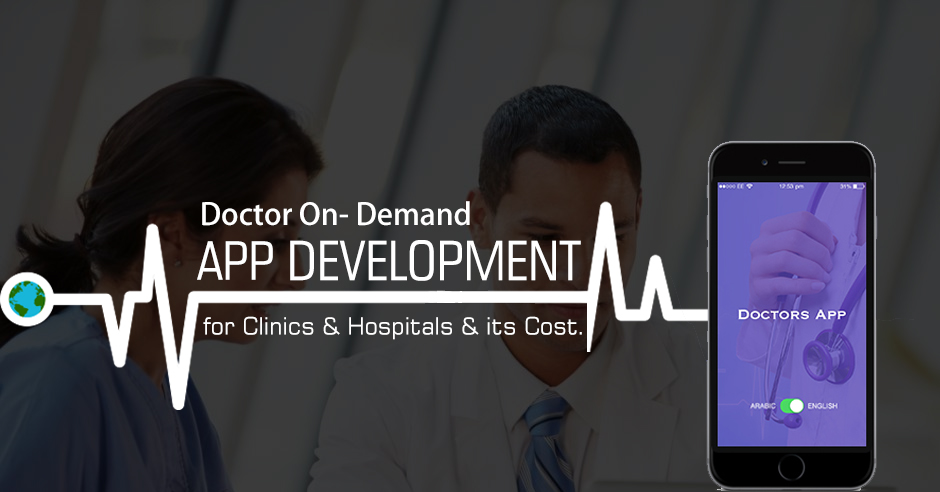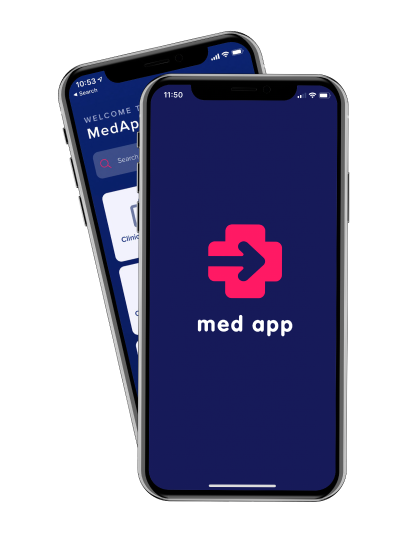How a Mobile App for Clinics Boosts Communication Between Doctors and Patients
How a Mobile App for Clinics Boosts Communication Between Doctors and Patients
Blog Article
The Future of Health Care: Why Clinics Required a Mobile Application Today
As the healthcare landscape continues to evolve, centers deal with placing pressure to adapt to patient assumptions for greater convenience and accessibility. The integration of mobile applications can serve as a vital strategy for boosting individual engagement and simplifying procedures.
Altering Individual Expectations
As the landscape of medical care develops, person expectations are undergoing a considerable improvement. Today's clients are significantly seeking ease, availability, and personalized care.
Furthermore, clients are becoming a lot more notified and empowered, frequently researching problems and therapies on the internet prior to examinations. This increased awareness is coupled with a need for transparency in healthcare processes, consisting of expense estimates and treatment choices. Therefore, carriers are compelled to adapt by adopting electronic devices that improve the person experience.
The assumption for timely and effective interaction has actually never been greater, with many people thinking about responsiveness a critical component of quality treatment. mobile app for clinics. In this progressing landscape, health care organizations must acknowledge these transforming expectations and take advantage of mobile applications to foster an extra patient-centric approach, making certain that they not just meet but exceed the criteria established by today's enlightened customers
Enhancing Person Involvement

Mobile applications facilitate interaction in between patients and healthcare service providers, allowing real-time visit organizing, suggestions for medicine adherence, and direct messaging functions. These performances not just enhance ease but additionally construct a feeling of accountability amongst people. In addition, mobile applications can use instructional web content tailored to specific needs, assisting clients much better comprehend their problems and treatment choices.
The integration of gamification aspects within healthcare apps can also encourage patients to engage in healthy behaviors, reinforcing favorable lifestyle modifications. Eventually, boosting client engagement with mobile applications leads to enhanced health and wellness outcomes, greater person complete satisfaction, and an extra joint healthcare experience.
Enhancing Clinic Workflow
Streamlining facility procedures is important for improving workflow effectiveness and optimizing person care. The execution of mobile applications can considerably minimize administrative concerns, allowing doctor to focus more on person communications. By automating appointment organizing, person check-ins, and payment procedures, clinics can decrease wait times and enhance general functional effectiveness.
Mobile applications also facilitate real-time access to person documents, making find more information it possible for health care specialists to make enlightened choices quickly. This immediacy not only improves the top quality of care however additionally reduces the chance of mistakes related to lost or dated information. Leveraging mobile modern technology supports a more organized technique to handling client follow-ups and treatment plans, ensuring that no vital actions are ignored.
This allows for prompt replenishment and helps stay clear of disturbances in person care due to equip scarcities. By incorporating these performances right into their day-to-day procedures, facilities can produce a much more natural and efficient environment, eventually leading to improved patient outcomes and contentment.
Improving Interaction Channels
Reliable communication is often mentioned as a cornerstone of top quality healthcare delivery. In today's fast-paced clinical setting, mobile applications can considerably boost interaction channels between centers, patients, and medical care companies. By integrating mobile apps into their procedures, centers can help with real-time interactions, making sure that individuals obtain timely info concerning their consultations, examination results, and therapy plans.
Mobile apps also empower individuals to communicate straight with their healthcare groups with safe and secure messaging attributes. This direct line of interaction fosters a feeling of interaction and enables for instant explanation of problems, which can result in much better adherence to therapy procedures. Press alerts can advise people of upcoming appointments or drug routines, reducing no-show rates and boosting total health end results.

Remaining Affordable in Medical Care
In a swiftly evolving health care landscape, companies must prioritize development and versatility to keep an affordable edge. The assimilation of mobile applications right into healthcare solutions is no more optional; it is crucial for facilities aiming to enhance individual involvement, streamline procedures, and boost total solution delivery.
As people increasingly count on electronic systems for health and wellness monitoring, centers that fail to embrace mobile innovation threat falling back. A properly designed mobile app can use attributes such as consultation scheduling, telemedicine assessments, and accessibility to clinical documents, supplying individuals with comfort and my blog promoting loyalty.

Competitors are look at this web-site likewise investing in mobile solutions, so remaining in advance requires constant enhancement and staying notified concerning technical developments. Centers must not just carry out mobile applications however additionally take part in regular updates and refinements. Eventually, the successful integration of mobile technology will identify forward-thinking health care companies and set the standard for patient-centric treatment in a digital globe.
Verdict
In verdict, the assimilation of mobile applications in centers is essential to deal with the evolving landscape of client expectations. Eventually, the calculated application of mobile applications represents an essential step toward delivering customized and obtainable health care, therefore satisfying the demands of today's encouraged clients.
Ultimately, enhancing client interaction through mobile applications leads to boosted health end results, better client complete satisfaction, and a more collaborative healthcare experience.Mobile apps additionally promote real-time accessibility to individual documents, enabling health care professionals to make enlightened decisions rapidly. In today's fast-paced medical environment, mobile applications can substantially enhance communication networks in between clinics, patients, and health care service providers.Mobile applications also empower patients to communicate straight with their health care teams via safe and secure messaging features. Eventually, the critical implementation of mobile applications represents a crucial action toward providing accessible and personalized health care, therefore satisfying the needs of today's empowered people.
Report this page